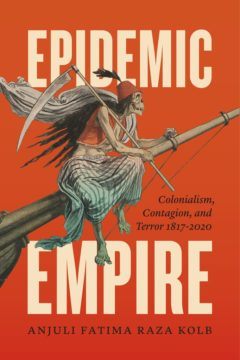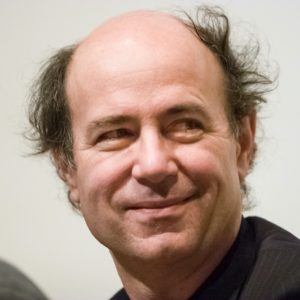Susan B. Glasser in The New Yorker:
 Precisely at noon on Wednesday, Donald Trump’s disastrous Presidency will end, two weeks to the day after he unleashed a mob of his supporters to storm the Capitol, seeking to overturn the election results, and one week to the day after he was impeached for so doing. He leaves behind a city and a country reeling from four hundred thousand Americans dead, as of Tuesday, from a pandemic whose gravity he downplayed and denied; an economic crisis; and an internal political rift so great that it invites comparisons to the Civil War.
Precisely at noon on Wednesday, Donald Trump’s disastrous Presidency will end, two weeks to the day after he unleashed a mob of his supporters to storm the Capitol, seeking to overturn the election results, and one week to the day after he was impeached for so doing. He leaves behind a city and a country reeling from four hundred thousand Americans dead, as of Tuesday, from a pandemic whose gravity he downplayed and denied; an economic crisis; and an internal political rift so great that it invites comparisons to the Civil War.
In the end, Trump was everything his haters feared—a chaos candidate, in the prescient words of one of his 2016 rivals, who became a chaos President. An American demagogue, he embraced division and racial discord, railed against a “deep state” within his own government, praised autocrats and attacked allies, politicized the administration of justice, monetized the Presidency for himself and his children, and presided over a tumultuous, turnover-ridden Administration via impulsive tweets. He leaves office, Gallup reported this week, with the lowest average approval ratings in the history of the modern Presidency. Defeated by Joe Biden in the 2020 election by seven million votes, Trump became the first incumbent seeking reëlection to see his party lose the White House, Senate, and the House of Representatives since Herbert Hoover, in 1932. A liar on an unprecedented scale, Trump made more than thirty thousand false statements in the course of his Presidency, according to the Washington Post, culminating in perhaps the biggest lie of all: that he won an election that he decisively lost.
Yet Republicans—the vast majority, that is, of those who still identify themselves as Republicans—continue to embrace Trump and the conspiracy theories about his defeat that the departing President has spread to explain his loss. This, more than anything, might have been the most surprising thing about Trump’s tenure: his ability to turn one of America’s two political parties into a cult of personality organized around a repeatedly bankrupt New York real-estate developer. And so we are ending these four years having learned not that Donald Trump is a bad man—the evidence of that was already voluminous and incontrovertible before he entered politics—but that there are millions of Americans who were willing to overthrow our constitutional system in order to keep him in power, who would follow Trump’s dark lies rather than acknowledge unwelcome truths.
 “Know thyself” is easy to say; but how, exactly, are we mortals supposed to obey the Delphic command? Surely not through the human “sciences.” Psychology, sociology, and anthropology all seem misapplications of a method of inquiry too abstract to explain messy human reality, depersonalizing what is quintessentially personal. If you want to make sense of human actuality, to ponder what makes our lives meaningful and why we do what we do, think what we think, and hope what we hope, the best guide I know is literature.
“Know thyself” is easy to say; but how, exactly, are we mortals supposed to obey the Delphic command? Surely not through the human “sciences.” Psychology, sociology, and anthropology all seem misapplications of a method of inquiry too abstract to explain messy human reality, depersonalizing what is quintessentially personal. If you want to make sense of human actuality, to ponder what makes our lives meaningful and why we do what we do, think what we think, and hope what we hope, the best guide I know is literature.
 In all its varied symptomology, menopause put me on intimate terms with what Virginia Woolf, writing about the perspective-shifting properties of illness, called “the daily drama of the body.” Its histrionics demanded notice.
In all its varied symptomology, menopause put me on intimate terms with what Virginia Woolf, writing about the perspective-shifting properties of illness, called “the daily drama of the body.” Its histrionics demanded notice. Build a working coalition
Build a working coalition  The
The 
 Like his many previous literary endeavors, Turkish novelist Orhan Pamuk’s new book Orange is about Istanbul, or rather how the city appears in his eyes. The book consists of color photographs of the city’s streets which Pamuk has been perpetually constantly taking for several years, always with the same technique and choice of motif. The result is a visual essay dedicated to the alleys and corners of his hometown. Over the author’s more than six decades living in Istanbul, Pamuk has witnessed the constant transformation of the city, notably from the gradual change from orange street lamps to white over the last ten years or so, not that the actual duration of the change matters. What does matter is the stark visible disappearance of the yellow-hued fluorescent lamps bringing a loss of the magical moments in a city landscape he dearly loves; the change is one he accepts only with some bitterness.
Like his many previous literary endeavors, Turkish novelist Orhan Pamuk’s new book Orange is about Istanbul, or rather how the city appears in his eyes. The book consists of color photographs of the city’s streets which Pamuk has been perpetually constantly taking for several years, always with the same technique and choice of motif. The result is a visual essay dedicated to the alleys and corners of his hometown. Over the author’s more than six decades living in Istanbul, Pamuk has witnessed the constant transformation of the city, notably from the gradual change from orange street lamps to white over the last ten years or so, not that the actual duration of the change matters. What does matter is the stark visible disappearance of the yellow-hued fluorescent lamps bringing a loss of the magical moments in a city landscape he dearly loves; the change is one he accepts only with some bitterness. The daily press conferences from Downing Street since March 2020 underline the prominence given to epidemiologists, behavioural scientists and the medical profession in driving policy reaction to the Covid-19 crisis. This may be evidence of a welcome return of scientific expertise to the heart of government after a period when much of the population and elements of the government had, in the words of
The daily press conferences from Downing Street since March 2020 underline the prominence given to epidemiologists, behavioural scientists and the medical profession in driving policy reaction to the Covid-19 crisis. This may be evidence of a welcome return of scientific expertise to the heart of government after a period when much of the population and elements of the government had, in the words of  We still don’t have all the technologies we need to address climate change.
We still don’t have all the technologies we need to address climate change. L
L Hester Street contains no muckraking impulse to uncover the “truth” of How the Other Half Lives. She rejected any sort of outsider gaze in favor of an awareness to the cadences of Yiddish, the shimmering falling leaves as an immigrant son and his father learn how to play baseball in a sun-kissed park, the loving camera effect gotten out of Keats’s blindingly over-exposed white shirt. It’s a perceptiveness that doesn’t advertise how perceptive it is. Much of Hester Street is consumed with the ordinary problem of how Carol Kane should style her wild hair, what raiment she should cross Delancey Street in, which hat to wear. Nearly a century after the events of Hester Street, in Crossing Delancey (my favorite Silver film, a rom-com set in contemporary 1988 New York), Amy Irving is obsessed by the same problem: whether to wear a Diane Keaton-ish bowler hat that was gifted to her by the owner of a pickle shop (Peter Riegert). The past constantly revives in Silver; newer generations never forget where they came from; time ebbs and flows in and out of style.
Hester Street contains no muckraking impulse to uncover the “truth” of How the Other Half Lives. She rejected any sort of outsider gaze in favor of an awareness to the cadences of Yiddish, the shimmering falling leaves as an immigrant son and his father learn how to play baseball in a sun-kissed park, the loving camera effect gotten out of Keats’s blindingly over-exposed white shirt. It’s a perceptiveness that doesn’t advertise how perceptive it is. Much of Hester Street is consumed with the ordinary problem of how Carol Kane should style her wild hair, what raiment she should cross Delancey Street in, which hat to wear. Nearly a century after the events of Hester Street, in Crossing Delancey (my favorite Silver film, a rom-com set in contemporary 1988 New York), Amy Irving is obsessed by the same problem: whether to wear a Diane Keaton-ish bowler hat that was gifted to her by the owner of a pickle shop (Peter Riegert). The past constantly revives in Silver; newer generations never forget where they came from; time ebbs and flows in and out of style. It could be considered a small thing that Trump can neither meet with Biden nor acknowledge that he has lost the election to him. But what if the refusal to acknowledge loss is bound up with the path of destruction we call Trump’s exit route? Why is it so hard to lose? The question has at least two meanings in these times. So many of us are losing people to Covid-19, or fearing death for ourselves or others. All of us are living in relation to ambient illness and death, whether or not we have a name for that sense of the atmosphere. Death and illness are quite literally in the air. And yet, it is unclear how to name or fathom these losses, and the resistance of Trump to public mourning has drawn from, and intensified, a masculinist refusal to mourn that is bound up with nationalist pride and even white supremacy. The Trumpists tend not to grieve openly pandemic deaths. They have conventionally rejected the numbers as exaggerated (“fake news!”) or defied the threat of death with their gatherings and maskless marauding through the public spaces, most recently in their spectacle of thuggery in the US Capitol in animal costumes. Trump never acknowledged the losses the US has suffered, and had no inclination or capacity to offer condolences. When the losses were referenced, they were not so bad, the curve was flattening, the pandemic would be short, it was not his fault, it was China’s fault. What people need, he claimed, was to get back to work because they were “dying” at home, by which he meant only that they were driven crazy by domestic confinement.
It could be considered a small thing that Trump can neither meet with Biden nor acknowledge that he has lost the election to him. But what if the refusal to acknowledge loss is bound up with the path of destruction we call Trump’s exit route? Why is it so hard to lose? The question has at least two meanings in these times. So many of us are losing people to Covid-19, or fearing death for ourselves or others. All of us are living in relation to ambient illness and death, whether or not we have a name for that sense of the atmosphere. Death and illness are quite literally in the air. And yet, it is unclear how to name or fathom these losses, and the resistance of Trump to public mourning has drawn from, and intensified, a masculinist refusal to mourn that is bound up with nationalist pride and even white supremacy. The Trumpists tend not to grieve openly pandemic deaths. They have conventionally rejected the numbers as exaggerated (“fake news!”) or defied the threat of death with their gatherings and maskless marauding through the public spaces, most recently in their spectacle of thuggery in the US Capitol in animal costumes. Trump never acknowledged the losses the US has suffered, and had no inclination or capacity to offer condolences. When the losses were referenced, they were not so bad, the curve was flattening, the pandemic would be short, it was not his fault, it was China’s fault. What people need, he claimed, was to get back to work because they were “dying” at home, by which he meant only that they were driven crazy by domestic confinement. Precisely at noon on Wednesday,
Precisely at noon on Wednesday,  Anne Schult: Over the course of the Covid-19 pandemic, reflections on contagious disease as allegory have abounded, and some of the most canonical texts engaging with this trope—from Susan Sontag’s
Anne Schult: Over the course of the Covid-19 pandemic, reflections on contagious disease as allegory have abounded, and some of the most canonical texts engaging with this trope—from Susan Sontag’s  What is the world made of? How does it behave? These questions, aimed at the most basic level of reality, are the subject of fundamental physics. What counts as fundamental is somewhat contestable, but it includes our best understanding of matter and energy, space and time, and dynamical laws, as well as complex emergent structures and the sweep of the cosmos. Few people are better positioned to talk about fundamental physics than Frank Wilczek, a Nobel Laureate who has made significant contributions to our understanding of the strong interactions, dark matter, black holes, and condensed matter, as well as proposing the existence of
What is the world made of? How does it behave? These questions, aimed at the most basic level of reality, are the subject of fundamental physics. What counts as fundamental is somewhat contestable, but it includes our best understanding of matter and energy, space and time, and dynamical laws, as well as complex emergent structures and the sweep of the cosmos. Few people are better positioned to talk about fundamental physics than Frank Wilczek, a Nobel Laureate who has made significant contributions to our understanding of the strong interactions, dark matter, black holes, and condensed matter, as well as proposing the existence of  It is time to define responsibility and hold these companies accountable for how they aid and abet criminal activity. And it is time to listen to those who have shouted from the rooftops about these issues for years, as opposed to allowing Silicon Valley leaders to dictate the terms.
It is time to define responsibility and hold these companies accountable for how they aid and abet criminal activity. And it is time to listen to those who have shouted from the rooftops about these issues for years, as opposed to allowing Silicon Valley leaders to dictate the terms.